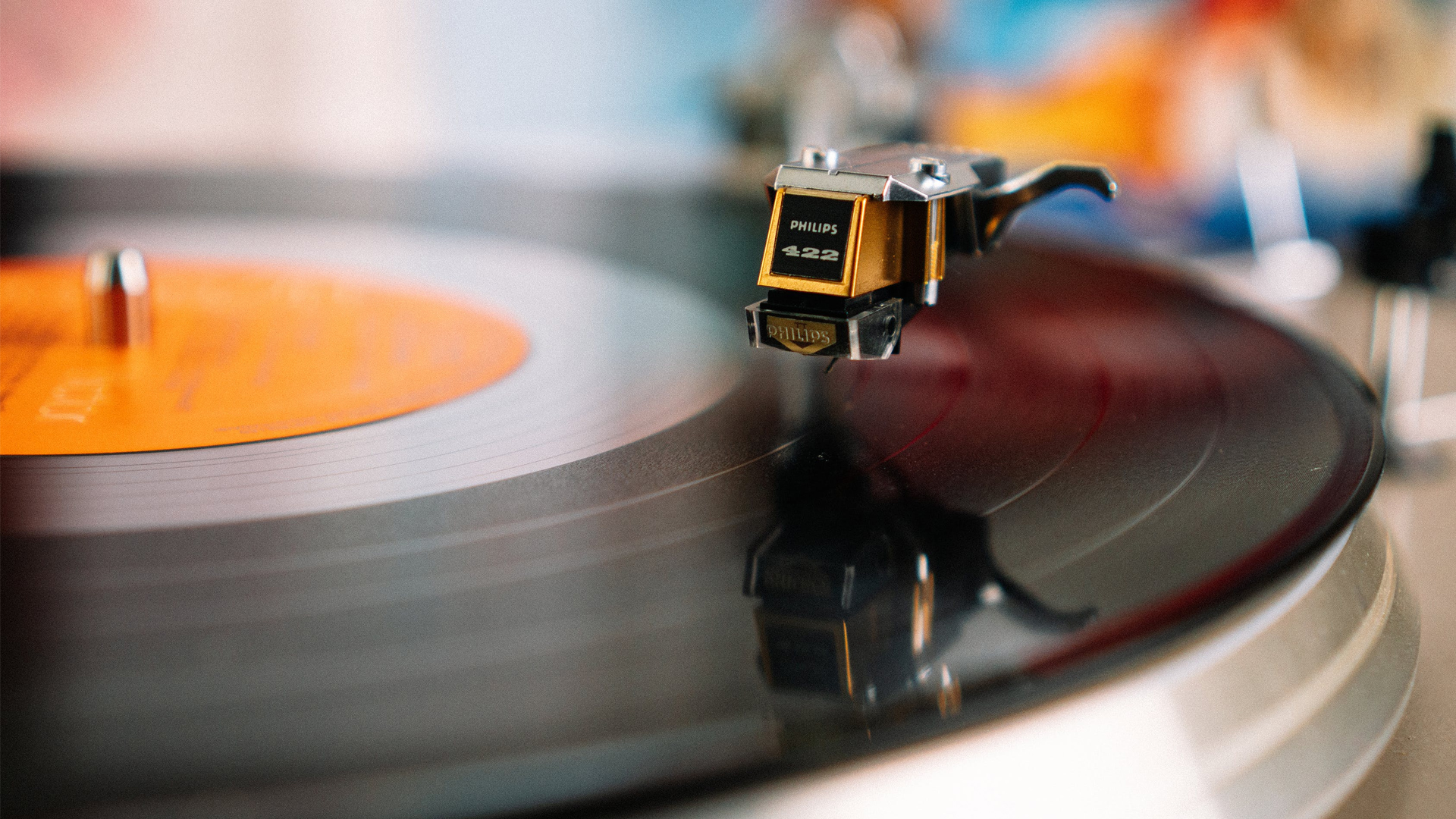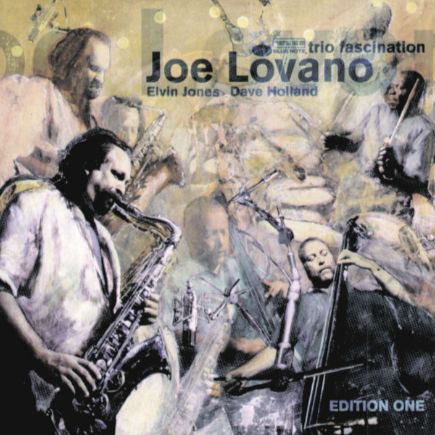Ghost of a Chance: un standard entre lyrisme et introspection
Genèse d’une ballade durable
Composée en 1932 par Victor Young, sur des paroles de Bing Crosby et Ned Washington, Ghost of a Chance, dont le titre complet est I Don’t Stand a Ghost of a Chance With You, s’impose rapidement comme l’un des grands standards du jazz. Victor Young, figure majeure de la musique américaine et compositeur prolifique pour le cinéma, y signe une mélodie d’une intensité rare, portée par un lyrisme immédiat. Dès l’origine, la chanson se distingue par sa capacité à conjuguer émotion directe et raffinement formel, des qualités qui assurent sa longévité.
De la popularité initiale à l’ancrage jazz
La première version, enregistrée par Bing Crosby avec l’ARC Brunswick Studio Orchestra dirigé par Lennie Hayton, rencontre un succès immédiat. Cependant, c’est au fil des décennies suivantes que Ghost of a Chance s’inscrit durablement dans le répertoire jazz. Progressivement adoptée par les musiciens, la ballade dépasse son statut de chanson populaire pour devenir une pièce de référence, régulièrement revisitée pour la richesse de son matériau mélodique et harmonique.
Intériorité expressive et contexte historique
Créée au cœur de la Grande Dépression, à un moment charnière où le jazz amorce sa transition des grands orchestres vers des formes plus libres, la chanson agit comme un lien entre les époques. Souvent interprétée sur des tempos lents, Ghost of a Chance offre un espace privilégié pour l’exploration des nuances et du silence. Sa ligne mélodique introspective, ses harmonies subtiles et ses paroles empreintes de résignation résonnent comme une quête d’émotion et de consolation, faisant de ce standard un lieu d’expression intime pour les improvisateurs.
La tendresse suspendue de Joe Lovano
Enregistrée à New York les 16 et 17 septembre 1997 pour l’album Trio Fascination, l’interprétation de Ghost of a Chance par Joe Lovano révèle une facette intimiste et poétique du saxophoniste américain. Il est entouré du contrebassiste Dave Holland et du batteur Elvin Jones, deux figures majeures du jazz moderne. Avec Trio Fascination, Joe Lovano s’affirme comme un architecte du son, capable de concilier la mémoire du jazz et la quête d’un langage personnel.
Dans ce trio sans piano, l’espace sonore devient un véritable terrain d’exploration. Joe Lovano, fidèle à son approche lyrique et ouverte, fait de la respiration et du silence des éléments constitutifs du discours musical. Son saxophone ténor, d’une sonorité à la fois ample et veloutée, trace des lignes mélodiques d’une grande expressivité, oscillant entre mélancolie et sérénité.
Dave Holland, par son jeu d’une clarté cristalline, soutient le flux harmonique tout en dialoguant subtilement avec le leader. Quant à Elvin Jones, il apporte une profondeur rythmique organique, jouant plus avec la pulsation intérieure qu’avec la mesure, conférant à la pièce une respiration quasi spirituelle.
Ghost of a Chance: un estándar entre lirismo e introspección
Génesis de una balada duradera
Compuesta en 1932 por Victor Young, con letra de Bing Crosby y Ned Washington, Ghost of a Chance, cuyo título completo es I Don’t Stand a Ghost of a Chance With You, se consolida rápidamente como uno de los grandes estándares del jazz. Victor Young, figura clave de la música estadounidense y prolífico compositor para el cine, firma aquí una melodía de intensidad poco común, marcada por un lirismo inmediato. Desde sus orígenes, la canción destaca por combinar emoción directa y refinamiento formal, cualidades que explican su perdurabilidad.
De la popularidad inicial al arraigo jazzístico
La primera versión, grabada por Bing Crosby con la ARC Brunswick Studio Orchestra dirigida por Lennie Hayton, obtiene un éxito inmediato. Sin embargo, es con el paso de las décadas cuando Ghost of a Chance se integra plenamente en el repertorio jazz. Adoptada progresivamente por los músicos, la balada trasciende su condición de canción popular para convertirse en una obra de referencia, apreciada por la riqueza de su material melódico y armónico.
Interioridad expresiva y contexto histórico
Creada en plena Gran Depresión, en un período de transición del jazz desde las grandes orquestas hacia formas más libres, la canción actúa como un puente entre épocas. A menudo interpretada a tempos lentos, Ghost of a Chance ofrece un espacio ideal para explorar matices y silencios. Su melodía introspectiva, sus armonías sutiles y su letra cargada de resignación resuenan como una búsqueda de emoción y consuelo, convirtiendo este estándar en un territorio de expresión íntima para los improvisadores.
La ternura suspendida de Joe Lovano
Grabada en Nueva York los días 16 y 17 de septiembre de 1997 para el álbum Trio Fascination, la interpretación de Ghost of a Chance por Joe Lovano revela una faceta íntima y poética del saxofonista estadounidense. Está acompañado por el contrabajista Dave Holland y el baterista Elvin Jones, dos figuras esenciales del jazz moderno. Con Trio Fascination, Joe Lovano se afirma como un verdadero arquitecto del sonido, capaz de conciliar la memoria del jazz con la búsqueda de un lenguaje profundamente personal.
En este trío sin piano, el espacio sonoro se convierte en un auténtico terreno de exploración. Joe Lovano, fiel a su enfoque lírico y abierto, hace de la respiración y del silencio elementos centrales de su discurso musical. Su saxofón tenor, de sonoridad amplia y aterciopelada, dibuja líneas melódicas de gran expresividad, oscilando entre la melancolía y la serenidad.
Dave Holland, con un sonido de claridad cristalina, sostiene el flujo armónico mientras dialoga sutilmente con el líder. Por su parte, Elvin Jones aporta una profundidad rítmica orgánica, tocando más con la pulsación interior que con la métrica, otorgando a la pieza una respiración casi espiritual.
Ghost of a Chance: uno standard tra lirismo e introspezione
Genesi di una ballata duratura
Composta nel 1932 da Victor Young, su testi di Bing Crosby e Ned Washington, Ghost of a Chance, il cui titolo completo è I Don’t Stand a Ghost of a Chance With You, si afferma rapidamente come uno dei grandi standard del jazz. Victor Young, figura centrale della musica americana e prolifico compositore per il cinema, firma una melodia di rara intensità, caratterizzata da un lirismo immediato. Fin dall’inizio, il brano si distingue per la capacità di unire emozione diretta e raffinatezza formale, elementi che ne garantiscono la longevità.
Dalla popolarità iniziale al radicamento jazz
La prima incisione, realizzata da Bing Crosby con l’ARC Brunswick Studio Orchestra diretta da Lennie Hayton, ottiene un successo immediato. Tuttavia, è nel corso dei decenni successivi che Ghost of a Chance entra stabilmente nel repertorio jazz. Progressivamente adottata dai musicisti, la ballata supera lo status di canzone popolare per affermarsi come brano di riferimento, apprezzato per la ricchezza del suo materiale melodico e armonico.
Interiorità espressiva e contesto storico
Creata nel pieno della Grande Depressione, in un momento di passaggio del jazz dalle grandi orchestre a forme più libere, la canzone funge da collegamento tra epoche diverse. Spesso eseguita a tempo lento, Ghost of a Chance offre uno spazio ideale per esplorare sfumature e silenzi. La sua linea melodica introspettiva, le armonie sottili e il testo intriso di rassegnazione risuonano come una ricerca di emozione e conforto, rendendo questo standard un luogo privilegiato di espressione intima per gli improvvisatori.
La tenerezza sospesa di Joe Lovano
Registrata a New York il 16 e 17 settembre 1997 per l’album Trio Fascination, l’interpretazione di Ghost of a Chance da parte di Joe Lovano rivela un lato intimo e poetico del sassofonista americano. È affiancato dal contrabbassista Dave Holland e dal batterista Elvin Jones, due figure fondamentali del jazz moderno. Con Trio Fascination, Joe Lovano si afferma come un vero architetto del suono, capace di conciliare la memoria del jazz con la ricerca di un linguaggio personale e profondo.
In questo trio senza pianoforte, lo spazio sonoro diventa un autentico terreno di esplorazione. Joe Lovano, fedele al suo approccio lirico e aperto, fa del respiro e del silenzio elementi essenziali del discorso musicale. Il suo sax tenore, dal timbro ampio e vellutato, traccia linee melodiche di grande espressività, oscillando tra malinconia e serenità.
Dave Holland, con un suono limpido e cristallino, sostiene il flusso armonico dialogando con finezza con il leader. Elvin Jones, invece, aggiunge una profondità ritmica organica, suonando più con la pulsazione interiore che con la misura, conferendo al brano una respirazione quasi spirituale.
Ghost of a Chance: a standard between lyricism and introspection
The genesis of a lasting ballad
Composed in 1932 by Victor Young, with lyrics by Bing Crosby and Ned Washington, Ghost of a Chance, whose full title is I Don’t Stand a Ghost of a Chance With You, quickly established itself as one of the great jazz standards. Victor Young, a major figure in American music and a prolific film composer, delivers a melody of rare intensity, marked by immediate lyricism. From the outset, the song stands out for its ability to combine direct emotion with formal refinement, qualities that ensure its lasting appeal.
From early popularity to jazz canon
The first recording, made by Bing Crosby with the ARC Brunswick Studio Orchestra conducted by Lennie Hayton, met with immediate success. Over the following decades, however, Ghost of a Chance became firmly rooted in the jazz repertoire. Gradually embraced by musicians, the ballad transcended its origins as a popular song to become a reference piece, repeatedly revisited for the richness of its melodic and harmonic material.
Expressive interiority and historical context
Created during the Great Depression, at a pivotal moment when jazz was shifting from large orchestras toward freer forms, the song acts as a bridge between eras. Often performed at slow tempos, Ghost of a Chance offers an ideal space for exploring nuance and silence. Its introspective melodic line, subtle harmonies, and lyrics steeped in resignation resonate as a search for emotion and consolation, making this standard a deeply intimate expressive terrain for improvisers.
Joe Lovano’s suspended tenderness
Recorded in New York on September 16 and 17, 1997 for the album Trio Fascination, Joe Lovano’s interpretation of Ghost of a Chance reveals an intimate and poetic side of the American saxophonist. He is joined by bassist Dave Holland and drummer Elvin Jones, two key figures in modern jazz. With Trio Fascination, Joe Lovano asserts himself as a true architect of sound, capable of balancing the memory of jazz with the pursuit of a deeply personal language.
In this piano-less trio, the sonic space becomes a genuine field of exploration. Joe Lovano, true to his lyrical and open approach, makes breath and silence essential components of his musical discourse. His tenor saxophone, at once broad and velvety, traces melodic lines of striking expressiveness, moving between melancholy and serenity.
Dave Holland, with his crystalline clarity, supports the harmonic flow while subtly dialoguing with the leader. Elvin Jones, for his part, brings an organic rhythmic depth, playing more with inner pulse than strict meter, giving the piece an almost spiritual sense of breathing.


